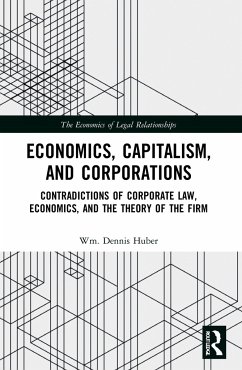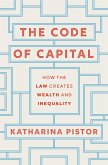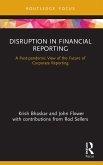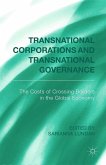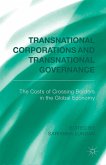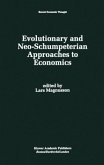This book is a continuation of Corporate Law and the Theory of the Firm: Reconstructing Corporations, Shareholders, Directors, Owners, and Investors. The author extends his analysis of contract law, property law, agency law, trust law, and corporate statutory law and applies that analysis to defy conventional concepts and theories in economics, finance, investment, and accounting and expose the artificial boundaries established by decades of research founded on indefensible assumptions and fallacious conclusions.
Using the Humpty Dumpty principle, where words mean what the authors want them to mean, economists have created "strange new worlds" where contract law, property law, agency law, and corporate statutory law no longer apply.
The author dismantles the theory of the firm by proving the theory of the firm wilfully and intentionally ignores fundamental contract law, property law, agency law, and corporate statutory law. Contrary to the theory of the firm, shareholders do not own corporations, directors are not agents of shareholders, and shareholders are not investors in corporations.
The author proves that by property law and corporate law, capital is not privately owned by capitalists but by corporations. Entire economic and social systems have been constructed that have no basis in law. With the advent of publicly traded corporations, the capital is there, but both capitalists and capitalism have been rendered extinct.
This book will appeal to researchers and graduate and upper-level undergraduate students in economics, finance, accounting, law, and sociology, as well as legal scholars, attorneys and accountants.
Using the Humpty Dumpty principle, where words mean what the authors want them to mean, economists have created "strange new worlds" where contract law, property law, agency law, and corporate statutory law no longer apply.
The author dismantles the theory of the firm by proving the theory of the firm wilfully and intentionally ignores fundamental contract law, property law, agency law, and corporate statutory law. Contrary to the theory of the firm, shareholders do not own corporations, directors are not agents of shareholders, and shareholders are not investors in corporations.
The author proves that by property law and corporate law, capital is not privately owned by capitalists but by corporations. Entire economic and social systems have been constructed that have no basis in law. With the advent of publicly traded corporations, the capital is there, but both capitalists and capitalism have been rendered extinct.
This book will appeal to researchers and graduate and upper-level undergraduate students in economics, finance, accounting, law, and sociology, as well as legal scholars, attorneys and accountants.
"The book is very interesting starting from the idea itself to the well cited information in each chapter. It is straightforward, simple language, systematic in its presentation and at the same time eligible to be used for all levels of learning; undergrad/grad/researchers,etc., covered most of the important points in each topic, cleared out the confusion between the different laws (Agency law, Trust law and Corporate law...) and the difference between the nature of the firm and the theory of the firm...complete and well presented." - Dina Rady, Ph.D., American University and George Washington University

